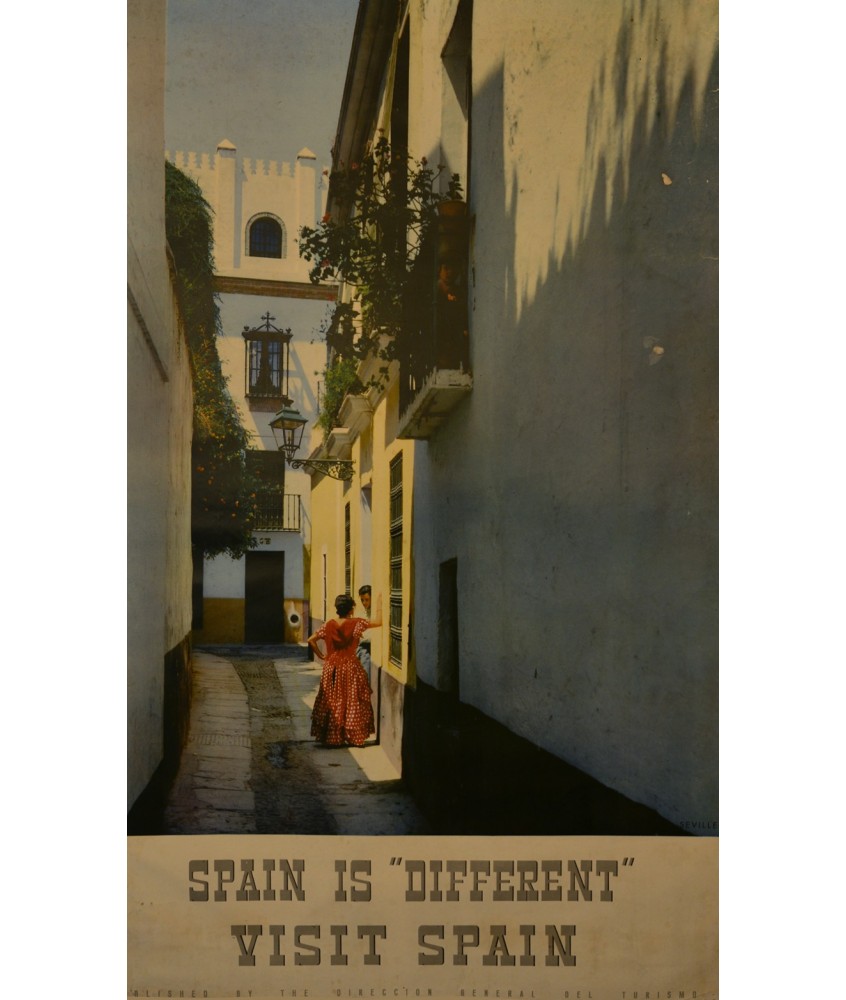- Out-of-Stock


Historically it is usually attributed to Manuel Fraga, minister of Information and Tourism between 1962 and 1969, having launched all kinds of tourist campaigns under the slogan 'Spain is different', interpreted by many as an attempt by the regime to turn the backwardness and isolation of the country in an exotic myth. Or the Spain of the sun, the beach, the tambourine and folkloric. Well, it's false.
CLASSIFICATION OF THE POSTERS ACCORDING TO THEIR CONSERVATION (in bold the one corresponding to this poster):
A+ Is a flawless example of a poster rarely seen in such fine condition.
A Designates a poster in very fine condition. There may be some tears on the margins, but not noticeable. No paper loss. Colours are fresh and has no blemish.
A- There may be some slight fold marks, tear or other minor defect, but most unobtrusive. Successful restoration if restored.
B+ If some restoration it is not immediately evident.
B Designates a poster in good condition. There may be some tears. Blemish or paper loss, but not in any crucial design area. Colours are fresh and the poster has a very good appearance.
B- Restoration may show some defects. Colours along the fold marks are faded.
C+ Restorations are visible.
C Designates a poster in fair condition. Tears, blemish, fold marks and or paper loss are more pronounced or may slightly affect the image of the poster. Colours may be faded.
C- Requires restoration.
Históricamente se suele atribuir a Manuel Fraga, ministro de Información y Turismo entre 1962 y 1969, haber lanzado todo tipo de campañas turísticas bajo el eslogan ‘Spain is different', interpretado por muchos como un intento del régimen por convertir el atraso y aislamiento del país en un mito exótico. O la España del sol, la playa, la pandereta y la folclórica. Pues es falso.
Pese a la creencia general, en los años sesenta no hubo ninguna campaña oficial que utilizara ese eslogan, como demuestra Sasha D. Pack en ‘La invasión turística'. Sólo se utilizó como reclamo turístico durante la autarquía de los años cuarenta y en ciertos momentos puntuales de los cincuenta. Algunos atribuyen la creación del eslogan a Luis Bolín, corresponsal de ‘ABC' en Londres (contribuyó a conseguir el Dragon Rapide con el que Franco voló desde las Canarias hasta África para sublevarse) y primer encargado de la Dirección General de Turismo franquista.